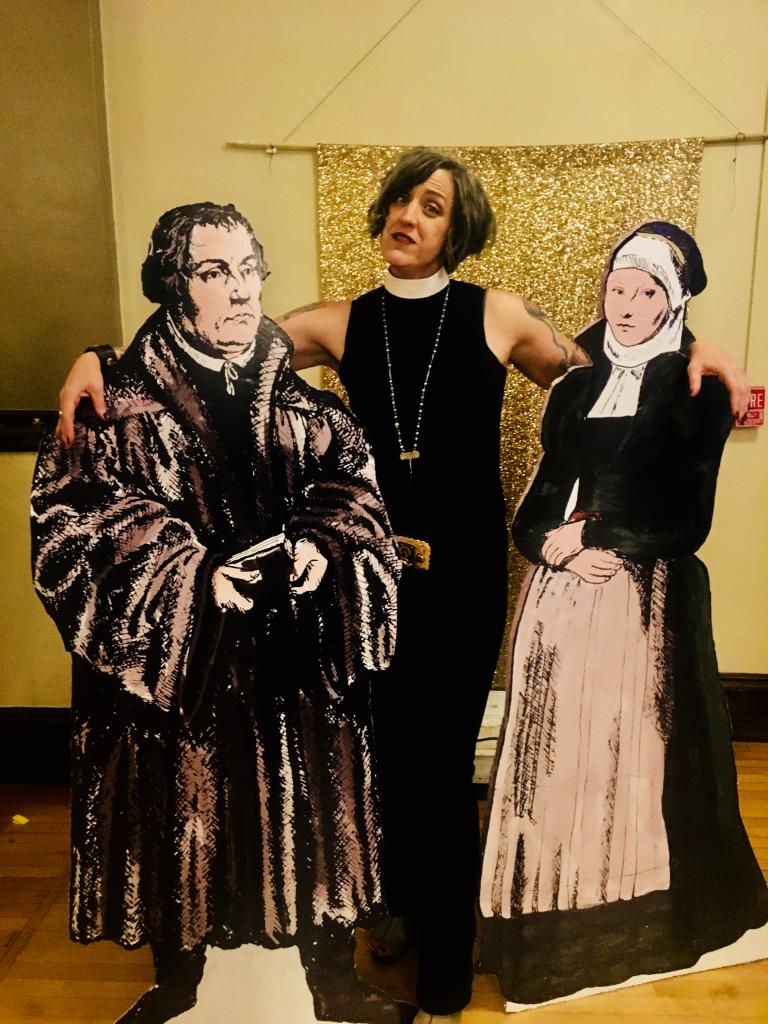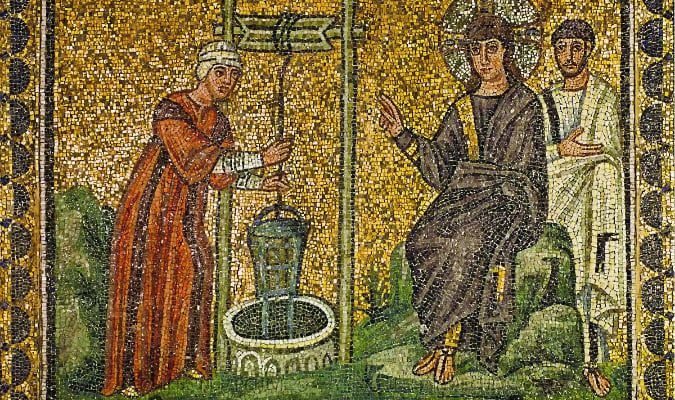![Carl Heinrich Bloch [Public domain], via Wikimedia Commons](https://wp-media.patheos.com/blogs/sites/20/2014/08/534px-Bloch-SermonOnTheMount-267x300.jpg)
Anyhow, I bring this up because I started wondering about why God’s sovereignty is never brought up when we talk about the beatitudes. Blessed are the meek, blessed are the poor in spirit, blessed are those who mourn…why do we play the It’s God’s will card when it comes to suffering but never when it comes to blessing? Why don’t we ever make big cosmic claims about God controlling everything that happens when it comes to the way in which God insists on blessing that which the world deems undesirable?
One reason is maybe because I think it can be easy to view the sermon on the mount as pure exhortation. It can be easy to view the beatitudes as Jesus’ command for us to try real hard to be meeker, poorer and mournier in order that we might be blessed in the eyes of God.
But what if the beatitudes aren’t about a list of conditions we should try and meet to be blessed. What if Jesus saying blessed are the meek is not instructive –what if it’s performative? meaning the pronouncement of blessing is actually what confers the blessing itself. Maybe the sermon on the mount is all about Jesus’ seemingly lavish blessing of the world around him especially that which society doesn’t seem to have much time for, people in pain, people who work for peace instead of profit, people who exercise mercy instead of vengeance. So maybe Jesus is actually just blessing people, especially the people who never seem to receive blessings otherwise. I mean, come on, doesn’t that just sound like something Jesus would do? Extravagantly throwing around blessings as though they grew on trees?
So I began to think this week about what our relationship to receiving and giving blessings might be if it’s the giving of a blessing itself, and not the ability to meet the conditions of receiving a blessing that make the receiver blessed
It’s a pretty Lutheran idea really, this whole because of not in order to thing. You see, you live lives worthy of the gospel because you have received grace upon grace. You don’t live lives worthy of the gospel in order to receive this grace.
It’s a pretty critical distinction, but the hard thing about looking at it this way is that for some of us it can be easier to try and meet the conditions of receiving a blessing that to simply receive a blessing.
A couple years ago I experienced this weird thing where old ladies kept blessing me in ways that felt super awkward. Walking off the stage after I spoke at an event at St. Mary’s cathedral in Memphis, a British woman in her 70s walks straight toward me and in front of God and everybody, embraces me. Not a friendly “thank-you” hug, but it was like embracing-with-the-intent-to-bless.
I had just read aloud an essay about my call to ministry; how it involved stand-up comedy and suicide and AA and pornography strangely and it was about seeing the gospel from the underside of our lives. And now before I knew what was happening some proper old British lady is blessing me. Red cardigan covered arms enfolded me as this stranger whispers in my ear “God has given you something.” She kisses my cheek not breaking the embrace even a little: “Jesus walks with you.” Again she kisses me. Again she whispers a blessing but always she keeps embracing me. Me. A heavily tattooed Lutheran who swears like a truck driver. I did not feel worthy of any of this But it feels like God’s own self blessing me with warm breath and a scratchy sweater.
When I sit back down I think, “What the hell just happened?” My friend Sara Miles, having seen the interaction, slides into the pew next to me saying, “Girl, you gotta just submit to letting people bless you.”
It’s hard though. But she’s right. we need to let people bless us. Maybe letting ourselves receive blessings is part of the Christian life. It’s just not one that people talk about much because we’re so busy worrying about what we should be doing for others.
A week or so after the scratchy red cardigan old lady blessed me…again just as I finish preaching at Church of the Beloved in Edmonds, Washington, it happens again. Almost exactly like the last time, only this time it’s a Franciscan nun in her long brown habit. With a hand on each of my shoulders, she looks me in the eye without a hope of me turning away. “You have been blessed.” She says as she chokes up and embraces me.
I think looking back that maybe God had somehow caught on to the fact that 70-year-old women are the only people whose blessings even I can’t resist.
So if we have a God who, out of God’s sovereignty blesses the poor the hurting, the peace making and the meek then I wonder what a Church might look like that submits to these blessings offered us by God. Perhaps you yourselves have your own version of old ladies with scratchy sweaters who are bringing you God’s own blessings. Look for them. Submit to these blessings brothers and sisters. Because God is a God who blesses in order that we might be blessed in order that we too might bless.
So if there is something we take away perhaps it is not to try and fulfill the conditions of receiving God’s blessing, but perhaps being God’s people is being a people who, like God, bless the world around us not on the basis of the world’s values but on the basis of God’s values. So I say let’s just make up excuses to bless people and places and things because it just seems so Jesus-y and kind of fun and I’m pretty sure that human blessing and NOT human suffering is “God’s will”
Amen.











